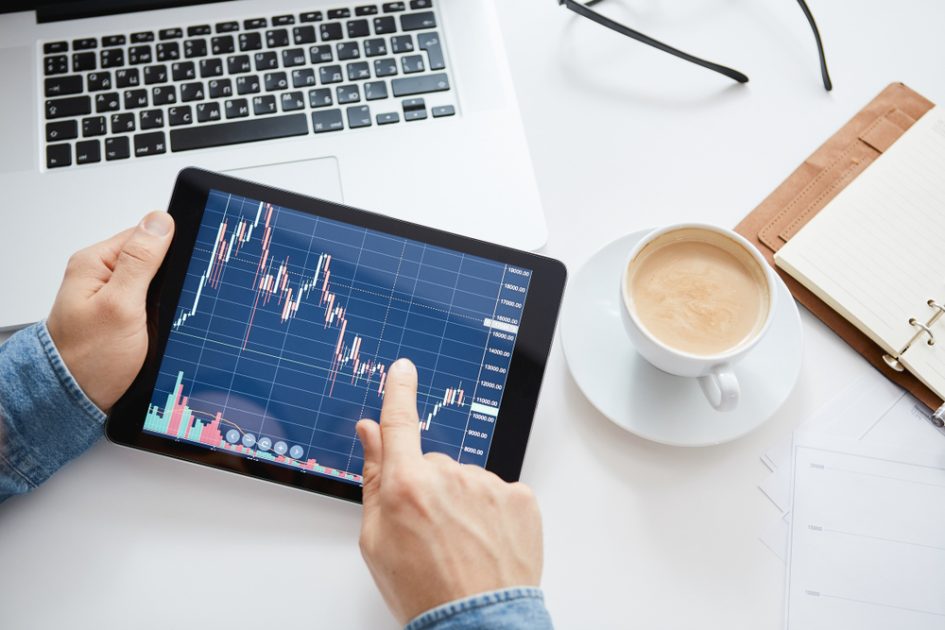Day Trading – What is It?

6 minutes for reading
Day trading or intraday is short-term transaction on stock exchanges performed during the same trading session without roll-overs. This way of trading is quite peculiar, because this approach requires traders to consider all incoming information, such as news, statistics, external factors, and a lot of other events. Market responses can be very quick, but short-term at the same time. This is exactly what is interesting for day traders. When trading within the same trading session, they have an opportunity to save their time and get profit in much shorter periods.
Nowadays it’s safe to say that day trading is a major driving force on financial markets. The current statistics shows that In the USA, where day trading is allowed since 1996, about 70% of day traders were losing their profit on NASDAQ stock exchange during the period from 1996 to 2000. Why? Because traders, who wanted to increase their margin, increased their risks as well. This is a subtle aspect of day trading.
Capital and risk management
Below you will find a lot of theoretics about this, but the only thing that should be remembered for sure – no positions are rolled over. The position opened today must be closed today. In order to minimize risks, trades must have a good knowledge of daily volatility (it can be figured out in advance by monitoring the market to know what to expect). Of course, there are life hacks, for example, the time, when the Asian session is ending and the European is starting, is pretty good for opposite positions.
When managing risks, it’s very important to remember that daily limitations for profit and losses is a necessary and essential aspect for day traders.

Day trading strategies
As a matter of fact, there is only one strategy: close all open transactions before the current trading session is over. To scratch beneath the surface, day trading strategies may be of two types, scalping and news trading. Let’s discuss both of them in more details.
Scalping is very simple and efficient. To use this method of trading, you have to set a clear threshold to close an order. If your plan implies “5x5” approach, then in case the current trend changes by 5 points in any direction, your order must be closed (with profit or loss, it doesn’t matter). In one case a scalper will get profit of 5 points, in the other one – lose the same amount. To minimize risks when the current trend starts moving in the wrong direction, traders use technical analysis of an asset behavior and place Stop Loss orders quite close to the price. Taken together, these things may really prevent traders from running many risks. One doesn’t have to follow “5 points rule” – as time passes and experience comes, traders find their own best way to close orders. The key thing is to close them no matter what.
Another thing that should be mentioned here is that liquidity of an asset is very essential for day trading. One is recommended to work with the assets that are highly liquid or the assets with strong trends and higher volatility. These factors are required to expand trading opportunities to earn more during the day.
News trading is another popular day trading strategy. This approach implies that traders have to keep in sight all incoming financial news, political and economy-wide events, in other words, anything that may have influence of price behavior. In this case, trader’s best friend is the macroeconomic calendar and the list of all upcoming events, from meetings of global regulators to summits and different talks and negotiations.
As experience comes, many traders create their own day trading strategy, which may be quite efficient.
Advantages and disadvantages of day trading
Day trading is a very energy-consuming process, which may be very challenging and exhausting, especially at first. Psychoemotional state is very important. When they talk about being a “cool head” and “getting rid of all emotions”, they mean day trading. When a day trading order is open, there won’t be time to calm down. One should remember this from the very beginning.
In order to handle emotions, one should limit risks and decide on the part of deposit one is going to use on a particular day. By opening an order worth 5-6% of the entire portfolio, a trader skates on really thin ice. For starters, 1-2% of the deposit will be enough. As experience comes, this number can be safely increased.
To receive profit from day trading, one must perform many transactions, which take a lot of time and efforts. In addition to that, opening and closing orders too often implies higher commission fees. Everyone decides for themselves whether it’s worth the cost or not.

Fundamental rules of day trading
Day trading requires traders to be quick and accurate. The quicker you make decisions and the more accurate they are, the better for you. There will be no time for reflections and hesitations, thorough analysis and slow systematic approach, that’s why it’s better to limit the number of instruments for day trading to the minimum and trade 2-3 assets in order not to “overload” your investment portfolio and confuse charts, prices, information, and news. If you are new to day trading, it will be better to trade one currency pair. As times passes, you may easily increase the number of trader assets and the volume of positions.
It’s very important to decide on the schedule. Considering an enormous drain on your physical and emotional state during the trading time, I recommend to trade two or three hours per day at the beginning of your day trading career – you shouldn’t get emotional stress at once.
Never set a goal to earn some particular number of points per trading day. It will put pressure on you, make you feel nervous, and push for hasty decisions. Set only those goals that you can reach.
Get into the habit of stopping day trading when situations become uncontrolled and go out of hand. Moreover, you should call it a day after several lossmaking orders in a row – don’t try to get your money back, this approach won’t do any good.







